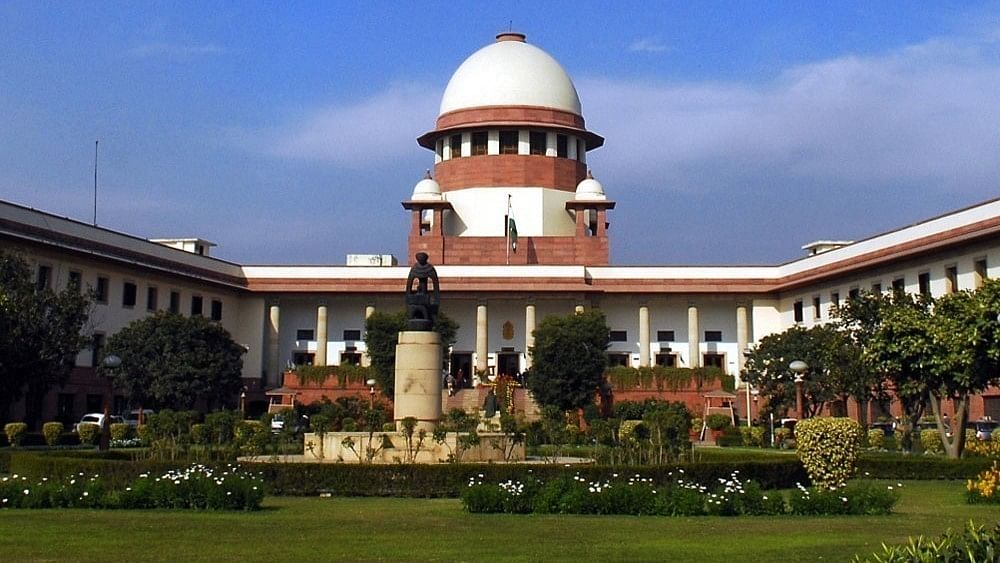
The Supreme Court of India.
Credit: PTI Photo
New Delhi: The Supreme Court on Monday declared that promotional trailer of a movie is not a promise or offer and cannot be treated as enforceable under the law.
A bench of Justices P S Narasimha and Aravind Kumar said that promotional trailers do not qualify as offers eliciting acceptance, and as such they do not transform into promises.
"Services involving art necessarily involve the freedom and discretion of the service provider in their presentation. This is necessary and compelling by the very nature of such services. The variations are substantial, and rightly so," the court said.
It also pointed out the standard of such service must account for the creative element involved in such transactions.
The court said that a promotional trailer is unilateral, and it is only meant to encourage a viewer to purchase the ticket to the movie, which is an independent transaction and contract from the promotional trailer.
Acting on a plea by film producer Yash Raj Films Private Limited, the court set aside the National Consumer Disputes Redressal Commission's order, which held that a consumer would feel deceived if a song that is shown in the promotional trailer is not played in the film, thereby would amount to an unfair trade practice.
The matter involved into a complaint by a teacher from Aurangabad, Afreen Fatima Zaidi who claimed they went to watch a movie Fan in 2016 due to a particular song in promotional trailer. However, it was not in the movie.
The bench also pointed out a promotional trailer is an advertisement for a film.
"A promotional trailer by itself is not an offer and neither intends to nor can create a contractual relationship. Therefore, there is no offer, much less a contract, between the appellant and the complainant to the effect that the song contained in the trailer would be played in the movie and if not played, it will amount to deficiency in the service," the bench said.
The court said that the transaction of service was only to enable the complainant to watch the movie upon the payment of consideration in the form of purchase of the movie ticket.
This transaction is unconnected to the promotional trailer, which by itself does not create any kind of right of claim with respect to the content of the movie, the bench added.
The bench said that it is a settled position of law that commercial speech, which includes advertisements, is protected through freedom of speech under Article 19(1)(a) of the Constitution, subject to the reasonable restrictions in Article 19(2).
The court also pointed out it is also a settled position that commercial speech that is deceptive, unfair, misleading, and untruthful is excluded from such constitutional protection and can be regulated and prohibited by the State.
Subject to the restrictions, the producer or advertiser has the freedom to creatively and artistically promote his goods and services, the court said.
"An advertisement is not only informational but also a means of creative and artistic expression. It can allure, entice, capture the attention, and pique the interest of consumers through features that may not directly relate to information about the product or service," the bench said.
The court pointed out that a song, dialogue, or a short visual in a promotional trailer may be seen in the context of the multifarious uses of advertisements.
However, the kind of right or liability a promotional trailer creates would entirely depend on the civil and statutory legal regime, it added.
In the case, the bench said that the deficiency alleged in the complaint arises out of the complainant’s own expectation that the song would be a part of the movie.
"It is assumed that there is deficiency of service as the movie did not contain the song. It is under this misplaced assumption that the subsequent formation of a contract to watch the movie is not in compliance with the promise allegedly made through the promotional trailer," the bench said.
In the case, the bench said the essential element of an ‘offer’ or ‘proposal’ for the formation of a contract has not been satisfied.
The court also held that the promotional trailer does not fall under any of the instances of “unfair method or unfair and deceptive practice”.
